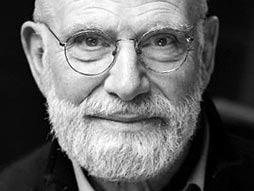Curiouser and curiouser: A cup of tea with Oliver Sacks
A memorable conversation with Oliver Sacks reveals what might have been his greatest attribute: undying curiosity.
Continue reading
Oliver Sacks was a ground-breaking neurologist -- and a gifted storyteller who enriched our knowledge of the infinite variations of human psychology. After his pioneering work with “sleepy sickness” patients (who were in fact survivors of an early-20th-century pandemic), Sacks went on to study the connections between music and the brain, as well as disorders such as Tourette's syndrome, Parkinson's disease, and many other little-understood disorders that often count Sacks as one of their first chroniclers.
Sacks was well known as a writer of such best-selling case histories as Hallucinations, The Man Who Mistook His Wife for a Hat, An Anthropologist on Mars, and his memoir of his early work, Awakenings, all of which have breathed new life into the dusty 19th-century tradition of the clinical anecdote. Sacks' writing, compassion and wide-ranging knowledge catapults the genre into the 21st century and brings the far frontiers of neurological experience into the view of millions of readers worldwide. Sacks died at age 82 in August 2015.
Read TED's long, wonderful Q&A with Oliver Sacks >>
“Sacks's writerly form is now its own literary genre. It's easy to take his originality for granted, to forget how unlikely it is that a book about neurological disorders would become a bestseller, or that a bearded neurologist would become a cultural icon.” — Jonah Lehrer, seedmagazine.com
A memorable conversation with Oliver Sacks reveals what might have been his greatest attribute: undying curiosity.
Continue readingFilmmaker Ric Burns describes the turn of events that led to his latest project, a documentary of the prolific author and neurological anthropologist, Oliver Sacks.
Continue readingNeurologist and author Oliver Sacks died on Sunday, August 30, at age 82. He’d announced in February that he was in the final stages of terminal cancer, and wrote a beautiful essay in the New York Times about what that meant to him: Over the last few days, I have been able to see my life […]
Continue reading